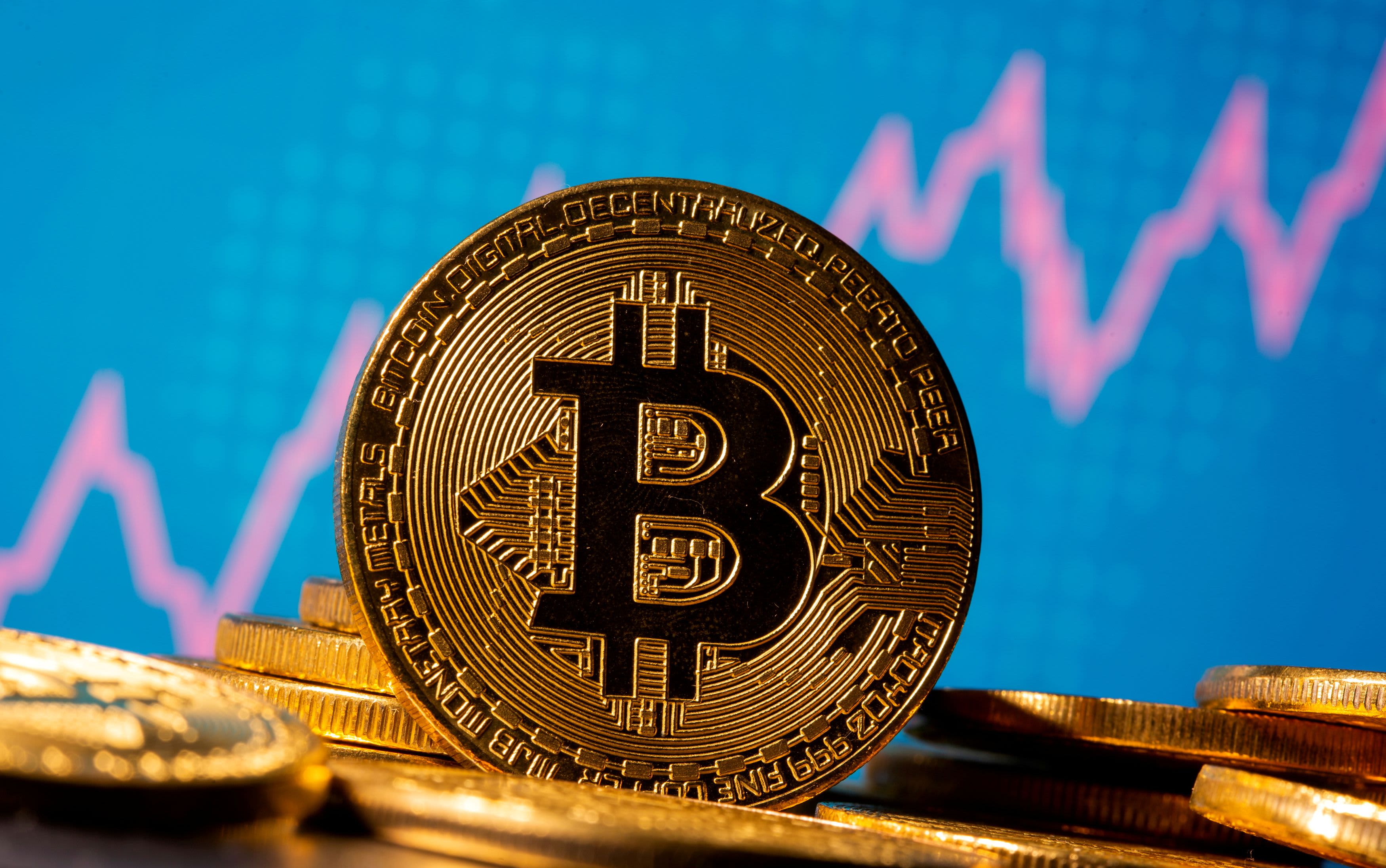
Dado Ruvic | Reuters
Bitcoin jumped to a nearly five-month high above $55,000 on Wednesday, extending its rally from the previous day as equity markets fell in volatile October trading.
The cryptocurrency last traded 6% higher at $54,270, according to Coin Metrics. Ether also rose about 3% to $3,576.
Bitcoin rose as high as $55, 499 earlier in the session. It’s up up 13% this week alone and now 87% for the year.
The rally comes amid a series of small developments in Washington, D.C. that have provided some comfort to institutional investors keen to jump into cryptocurrencies. On Tuesday, Securities and Exchange Commission chairman Gary Gensler said in a hearing of the House Financial Services Committee that he has no plans to ban cryptocurrency, and that a ban would be up to Congress.
Gensler’s comments mirror those made by Federal Reserve chairman Jerome Powell, who also said Friday that he has no plans to ban cryptocurrencies.
Investors are also awaiting SEC approval for a bitcoin futures ETF as soon as this month.
At the same time, stocks were falling as investor concerns about rising rates, higher inflation, the state of the reopening and the debt limit. Bitcoin hasn’t proved itself to be a safe haven asset – its price has tanked with the stock market several times before – but many still see it that way and it was holding up amid Wednesday’s equity market turmoil.
“The Janet Yellen discussion on air yesterday was a major reason to buy bitcoin,” Jim Cramer said on CNBC’s ‘Squawk on the Street’ Wednesday morning. “If you parse what she’s saying and it becomes true, the dollar doesn’t seem to be as valuable as crypto.”
On Tuesday Yellen warned that inflationary pressures hitting the U.S. economy could last for several months and that the U.S. should fully expect a recession if the debt limit isn’t lifted within two weeks.
“Thus far we’ve seen cryptos behave as a hybrid somewhere between a commodity and a currency,” said Lisa Shalett, chief investment officer at Morgan Stanley Wealth Management, on ‘Squawk on the Street.’ So the “volatility has been 4x that of stocks.”




